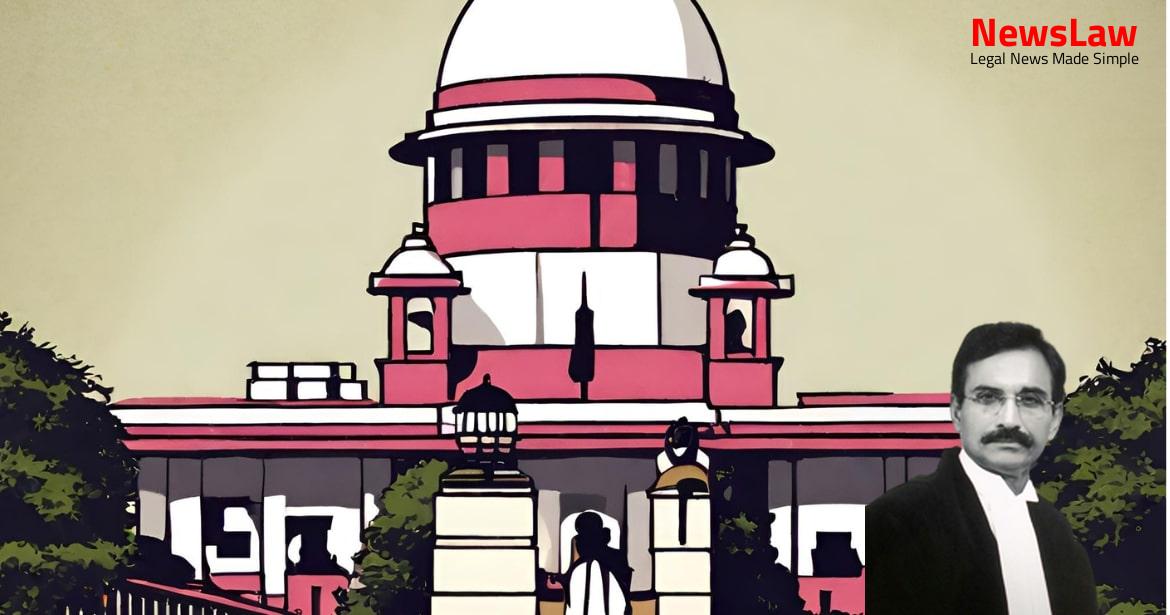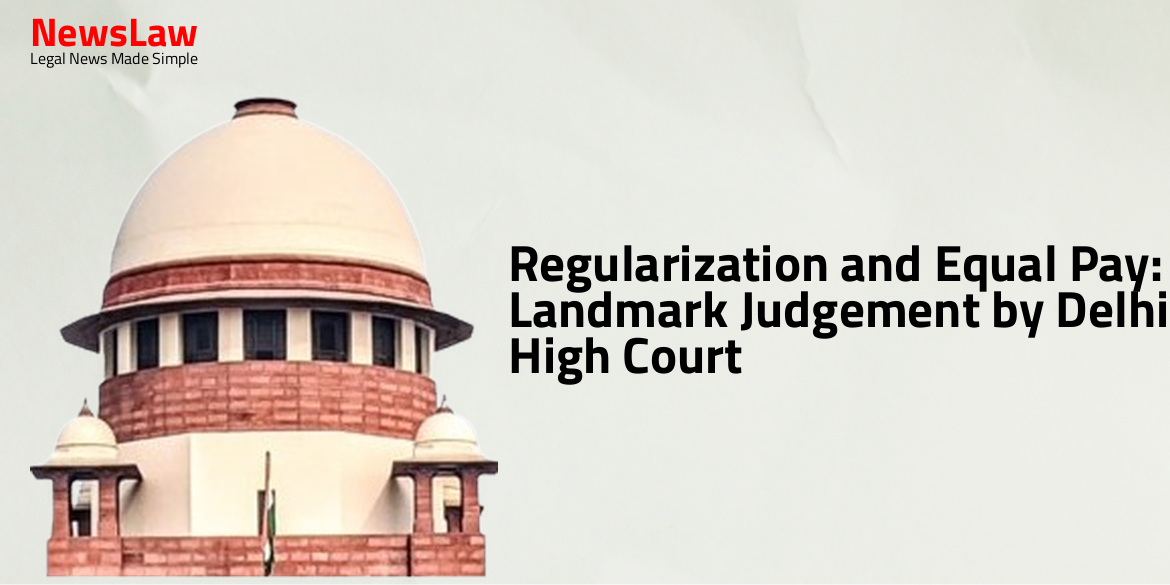In a recent legal case, the Court delves into the concept of irretrievable breakdown of marriage, emphasizing the importance of such analysis in resolving matrimonial disputes. The Court’s thorough legal examination sheds light on the complexities involved in determining the irretrievability of a marriage, setting a precedent for future cases in family law.
Facts
- The Appellant accused the Respondent of adultery and excessive alcohol consumption.
- The Respondent did not appear before the High Court.
- The suit was dismissed, leading to the Appellant filing an appeal before the High Court of Calcutta.
- The marriage between the parties was registered under the Special Marriage Act, 1954, and later solemnized under Hindu rites and customs.
- The Respondent resisted the Petition for dissolution of marriage by denying the allegations against her.
- The Respondent failed to appear in court despite being served notice.
- The Appellant alleged physical assault by the Respondent during holidays.
- The Respondent misbehaved with the in-laws and frequently left the matrimonial home.
- The Appellant accused the Respondent of cruelty and desertion, leading to the filing of a suit for dissolution of marriage.
- The Appellant alleged that the Respondent insisted on him residing separately from his parents.
- Trial Court and High Court upheld the judgment refusing the appellant’s plea for divorce due to lack of evidence of cruelty by the wife.
- High Court dismissed the appeal filed by the appellant, affirming the Trial Court’s decision.
- Husband failed to prove cruelty by his wife according to the Trial Court’s findings.
Also Read: Legal Analysis on Seniority Fixation in Contempt Petitions
Arguments
- The marriage between the Appellant and Respondent has been in a state of separation for over 16 years, indicating that the relationship is practically non-existent.
- The Appellant’s counsel, Mr. Nikhil Nayyar, argued that the marriage is effectively over and unworkable.
- The Respondent, represented by Mr. Ranjan Mukherjee, expressed a desire to continue living with the Appellant despite the longstanding separation.
- Mr. Mukherjee cited cases like Sukhendu Das v. Rita Mukherjee and Munish Kakkar v. Nidhi Kakkar to support the dissolution of marriages that are totally unworkable and irretrievable.
- Mr. Mukherjee has been appointed as Amicus Curiae to assist the Court on behalf of the Respondent, who did not engage legal representation.
Also Read: Analysis of Authorization and Limitation in Filing Section 7 Application
Analysis
- The Court dissolved the marriage due to an irretrievable breakdown, as the parties had been living separately for over 17 years.
- Compelling the parties to continue in matrimony was deemed to serve no useful purpose.
- The Court in Munish Kakkar v. Nidhi Kakkar and Sukhendu Das v. Rita Mukherjee resolved bitter matrimonial disputes that had persisted for two decades.
- In Sukhendu Das v. Rita Mukherjee, the marriage took place in 1992 but the parties had been living apart since 2000.
- The marriage between the parties is emotionally dead
- There is no point in persuading them to live together
Also Read: Judicial Review of Selection Process for DGP Appointment
Decision
- Appellant directed to pay Rs.25 Lakhs to the Respondent within 8 weeks
- Exercise of jurisdiction under Article 142 of the Constitution of India
- Marriage between the parties dissolved
- Respondent to withdraw petition under Section 125 Cr. PC upon receipt of Rs.25 Lakhs
- Payment of Rs.25 Lakhs is full and final settlement of all claims against the Appellant
- Appeal disposed of accordingly
Case Title: SUBHRANSU SARKAR Vs. INDRANI SARKAR (NEE DAS) (2021 INSC 479)
Case Number: C.A. No.-005696-005696 / 2021



